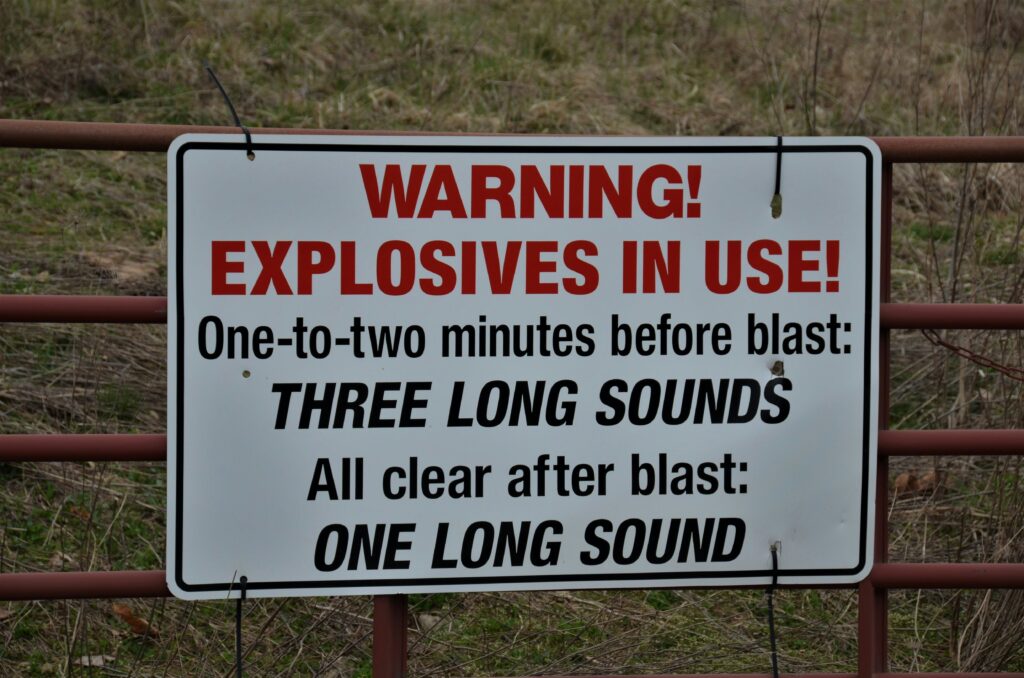Introduction
Many workers believe that protecting themselves from noise hazards is solely their employer’s responsibility. While laws and regulations like OSHA noise standards do require companies to take action, the reality is that you—the employee—have the most to lose if noise hazards are ignored.
Hearing loss, tinnitus, and other noise-related health problems are often irreversible. Once the damage is done, no medical treatment can fully restore your hearing. That’s why knowing how to protect yourself, even if your workplace doesn’t prioritize it, is critical. Your hearing is valuable, and once it’s compromised, it’s gone for good.
Recognizing a Noise Hazard
Before you can protect yourself, you need to know when noise reaches dangerous levels. The first step is to recognize a noise hazard. Here are some warning signs:
1. You have to shout to be heard by someone one meter away.
If you find yourself shouting to communicate with coworkers in close proximity, that’s a clear sign that noise levels are too high.
2. Ringing, buzzing, or muffled hearing after a shift.
If your ears ring, buzz, or feel muffled after work, these are signs of potential damage. Tinnitus, or ringing in the ears, is a common early symptom of hearing damage from noise exposure.
3. Persistent headaches or fatigue in noisy environments.
Noise-induced stress can cause both headaches and fatigue, making it difficult to focus and complete tasks effectively.
4. Difficulty understanding conversations, especially in background noise.
If you have trouble hearing verbal communication in noisy environments, it may indicate that noise levels exceed safe limits for extended exposure.
Rule of Thumb: If the noise makes your ears hurt or leaves you feeling drained, it’s likely above safe exposure levels. In general, if you experience physical discomfort or reduced performance due to noise, it’s time to take action.
The Health Risks of Ignoring Noise Hazards
The long-term exposure to excessive noise can have severe health consequences. Here are some of the primary risks of ignoring workplace noise hazards:
1. Permanent Hearing Loss
Noise-induced hearing loss (NIHL) is one of the most common outcomes of prolonged exposure to loud environments. Damage to the inner ear (specifically the hair cells in the cochlea) is irreversible, and once these cells are damaged, they cannot regenerate.
2. Tinnitus
Tinnitus is a condition where you experience ringing, buzzing, or humming in the ears, which can interfere with normal hearing and cause significant distraction and stress. It’s one of the first signs that noise exposure is reaching dangerous levels.
3. Stress and Mental Fatigue
Noise not only affects hearing but also increases stress and mental fatigue. Constant exposure to loud environments can lead to heightened irritability, reduced concentration, and impaired decision-making. This leads to reduced performance and can impact overall work quality.
4. Accident Risk
Noise can mask warning signals, alarms, and verbal instructions, increasing the chances of accidents. For example, in environments like construction sites or manufacturing floors, workers may miss important safety alerts or verbal communication due to high noise levels.
Practical Steps Workers Can Take
Even if your employer doesn’t provide hearing protection or take noise hazards seriously, there are several steps you can take to protect yourself. Here’s how you can actively manage your exposure:
1. Use Personal Protective Equipment (PPE)
Even if your employer doesn’t provide hearing protection, you can purchase affordable earplugs or earmuffs from safety supply stores.
Look for the Noise Reduction Rating (NRR) label on these devices—the higher the number, the more protection they offer.
2. Limit Your Exposure Time
Step away from noisy areas during breaks. Taking regular breaks in quieter areas allows your ears to recover, reducing overall exposure time.
If you can, limit the amount of time you spend working in noisy environments.
3. Position Yourself Away from Noise Sources
If your work allows, choose a workstation farther from loud machinery or tools. Even slight adjustments to your physical position in a noisy environment can reduce exposure to harmful sound levels.
4. Get Your Hearing Tested
Regular hearing tests can catch problems early. Many clinics offer free or low-cost screenings. If you notice any early signs of hearing loss, such as difficulty hearing conversations or ringing in your ears, seek help immediately.
5. Report Unsafe Noise Levels
If your employer isn’t aware of the noise hazard, they can’t fix it. Report noise issues to your supervisor, safety officer, or OSHA if necessary. Filing a formal complaint may result in an investigation and the implementation of corrective measures.
Long-Term Hearing Care Tips
Even outside of work, it’s essential to take proactive steps to protect your hearing:
1. Avoid Loud Music in Headphones After Work
Listening to loud music with headphones can further damage your hearing. Try to keep the volume low and give your ears time to recover after work.
2. Use Noise-Canceling Headphones for Non-Work Loud Environments
In environments like public transportation or crowded areas, noise-canceling headphones can reduce the risk of hearing damage while offering comfort.
3. Rest Your Ears in Quiet Spaces for at Least an Hour a Day
Quiet spaces allow your ears to recover from prolonged exposure to sound. Make time each day to rest your ears, whether it’s through quiet breaks at work or peaceful environments at home.
4. Be Aware of Early Signs of Hearing Problems
If you experience ringing, muffled hearing, or difficulty understanding speech, it’s important to seek medical advice immediately. Early intervention can help prevent further damage.
When Employers Fail to Act
If you’ve reported noise hazards to your employer and nothing changes, you have the right to contact your local occupational health authority or labor department. In the U.S., this means filing a complaint with OSHA.
OSHA regulations exist to protect you, and if your employer fails to comply, it is your right to take action. Remember, while laws are designed to protect workers, action often starts with your voice. Don’t be afraid to speak up when your hearing or health is at risk.
Conclusion
Your hearing is priceless—once lost, it’s gone forever. Even if your employer is slow to address workplace noise hazards, you can take proactive steps to protect yourself. Equip yourself with PPE, limit exposure time, and get regular hearing checks to stay on top of your ear health.
Safety at work is a shared responsibility, but your hearing health is ultimately in your own hands. Treat it as seriously as you would your vision, because a world without sound is a world forever changed.
By actively managing noise exposure, you can ensure that your hearing remains protected throughout your career, reducing the risk of long-term damage while keeping your workplace productive and safe.


